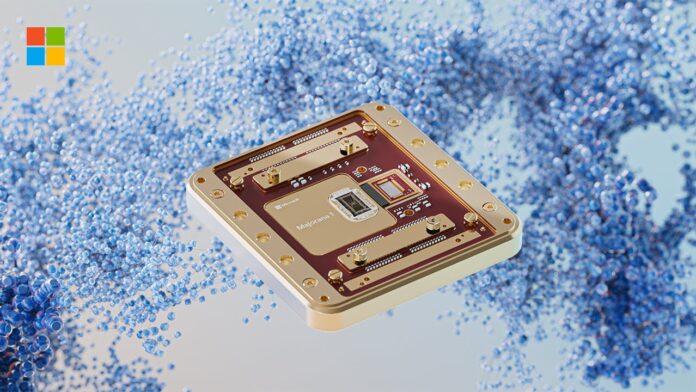Microsoft has revolutionized quantum computing with the launch of Majorana 1, the world’s first quantum chip based on a game-changing Topological Core architecture. The firm believes that the breakthrough will make it possible for quantum computers to tackle industrial-scale challenges in a matter of years, and not decades. This is driven by the world’s first topoconductor, a new material able to manipulate Majorana particles, which are key to developing more robust and scalable qubits.
The power of the Topoconductor
The topconductor, or topological superconductor, is a paradigm breakthrough in material science. Unlike conventional superconductors, it facilitates a more stable quantum state by introducing an entirely new class of matter—a topological state. This stability means more robust and error-free qubits, enabling quantum computers to scale cost-effectively. Microsoft researchers, led by Chetan Nayak, have invented a novel stack of materials using indium arsenide and aluminum to design these unusual quantum states.
“We stepped back and said, ‘What does a quantum transistor need to be?’ And that’s how we got this new architecture,” Nayak said.
Scaling to one million qubits
One of the biggest challenges facing quantum computing has been scalability. Present quantum machines have difficulty retaining stability as the number of qubits grows. Majorana 1’s design creates an open road to embedding one million qubits on one chip, which is a very important milestone for quantum computers to provide practical applications.
The potential uses of that kind of computer power are astounding. Microsoft predicts shattering microplastics into harmless pieces, creating self-repairing materials, and even transforming drug development. These efforts are currently outside the realm of today’s conventional supercomputers, but on a million-qubit quantum device, they are possible.
“Whatever you’re doing in quantum needs a path to a million qubits. If it doesn’t, you’ll hit a wall before solving meaningful problems,” Nayak emphasized.“
Digital control for a quantum leap
In contrast to conventional quantum systems based on finely tuned analog control, Majorana 1 brings digital control mechanisms to qubits. This is a radical simplification of the way quantum computing operates, making it much more feasible for industrial use.
Microsoft’s multi-year bet on topological qubits, while high in science and engineering risk, is now paying dividends. The team has been able to put eight topological qubits on a single chip, that can scale well to one million.
SUGGESTED FOR YOU
Recognition from DARPA and industry partnerships
Microsoft’s developments have caught the eye of DARPA (Defense Advanced Research Projects Agency), which has added the company to its Underexplored Systems for Utility-Scale Quantum Computing (US2QC) program. The program is designed to speed up the creation of utility-scale, fault-tolerant quantum computers. Microsoft is currently one of the two companies advancing to the program’s final stage.
In addition, Microsoft is collaborating with Quantinuum and Atom Computing to advance quantum computing architectures. These partnerships have already generated remarkable advances, such as the first reliable quantum computer in the industry last year.
Quantum computing’s real-world impact
Getting to the next level of quantum computing is about more than processing power—it’s about addressing real-world problems. Quantum computers will transform industries by:
- Designing self-healing materials that repair cracks in structures.
- Developing catalysts to break down pollutants like microplastics and carbon emissions.
- Optimizing enzyme behavior for breakthroughs in healthcare and agriculture.
- Enabling AI-powered material discovery, allowing scientists to specify a desired outcome and receive the exact molecular recipe.
“Any company that produces anything could design it flawlessly the first time. No guesswork, no years of trial and error,” stated Matthias Troyer, Microsoft Technical Fellow.
The road ahead: Rethinking quantum at scale
Quantum computing adheres to laws much different than classical computing, so stability and control of the qubits represent the largest obstacle. Microsoft’s method—working with Majorana particles—has opened up an entirely new pathway to constructing scalable quantum machines.
Historically, qubits are fragile and prone to environmental noise. Majorana qubits, being intrinsically error-resistant, mean that significantly fewer layers for error correction need to be done, making massive quantum systems practicable. This achievement is also supported by the company’s recently published peer-reviewed paper in Nature, a watershed moment in research on quantum computers.
Moreover, Majorana qubits are compact, allowing Microsoft’s quantum chip to fit in the palm of a hand. This contrasts sharply with alternative quantum architectures, which require vast, football-field-sized facilities to operate effectively.



